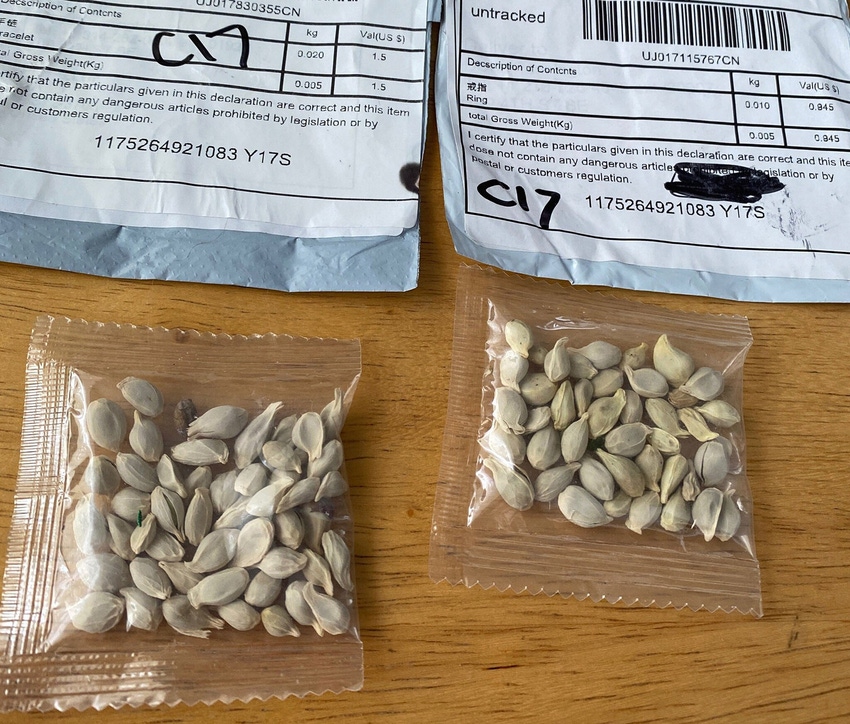February 22, 2021

In July 2020, several reports surfaced of U.S. residents receiving unsolicited packages of seeds in the mail. Some people tossed them, some people planted them and some people reported them.
The reports spurred state agriculture departments to action. Warnings went out for residents to call state agriculture officials. USDA also got involved and worked with the state departments of agriculture. Seeds were received by residents of all 50 states.
USDA said the seeds included a mixture of ornamental, fruit, vegetable and weed seeds.
“We are thankful to the public for reporting the seeds and getting them to USDA officials so that we could investigate them and avoid introducing foreign pests into our environment,” said Plant Protection and Quarantine Program Deputy Administrator Dr. Osama El-Lissy.
USDA's Animal and Plant Health Inspection Service has found no evidence that someone was intentionally trying to harm U.S. agriculture with these shipments. In fact, there is no correlation between where the seeds were sent and U.S. critical agriculture infrastructure. APHIS officials believe the unsolicited packages are part of an internet “brushing scam.” Sellers carrying out brushing scams will often ship inexpensive items to increase transactions. The more transactions a seller completes, the higher their rating and the more likely that their items will appear at the top of search results on an e-commerce site.
APHIS has been working with e-commerce companies to remove the online sellers that are participating in the illegal import of propagative materials, including seeds. The agency has also been working with e-commerce companies to ensure they, and the sellers who use their platforms, are complying with USDA import regulations.
The agency is providing additional guidance to help online buyers and sellers comply with U.S. laws when they import seeds and live plants for planting from other countries. The information, available on the APHIS website, will also help protect critical U.S. agriculture infrastructure and natural resources from potential invasive pest and disease threats
The new guidance:
explains buyer and seller responsibilities;
outlines required documents, such as import permits and phytosanitary certificates;
provides information on plant and seed species that have additional import requirements; and
makes clear which types of plants and seeds are not allowed to be imported into the United States.
“Plants and seeds for planting purchased online from other countries can pose a significant risk to U.S. agriculture and natural resources because they can carry harmful insects and pathogens,” El-Lissy said. “We’ve been working closely with e-commerce companies and other federal partners to stop the flow of illegal plant and seed shipments from entering the country. This new site is a big step forward in our efforts to facilitate the safe trade of plants and seeds through the e-commerce pathway.”
Source: USDA APHIS, which is solely responsible for the information provided and is wholly owned by the source. Informa Business Media and all its subsidiaries are not responsible for any of the content contained in this information asset.
About the Author(s)
You May Also Like




